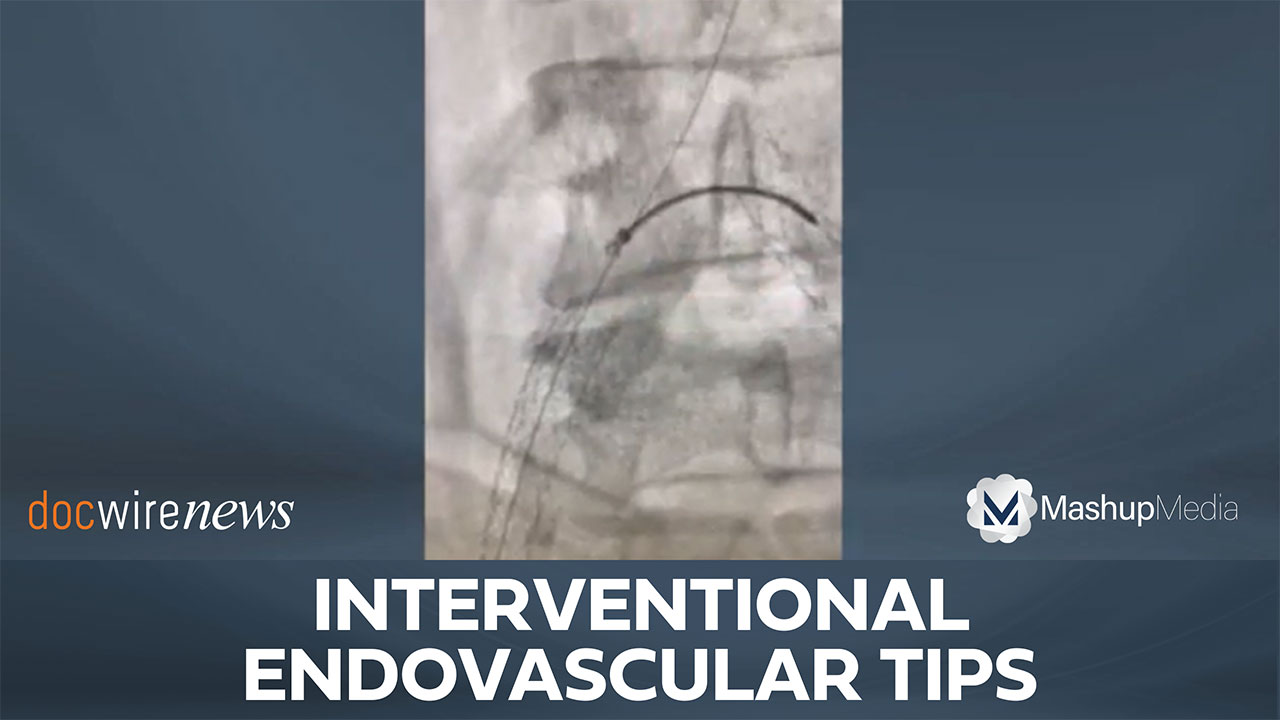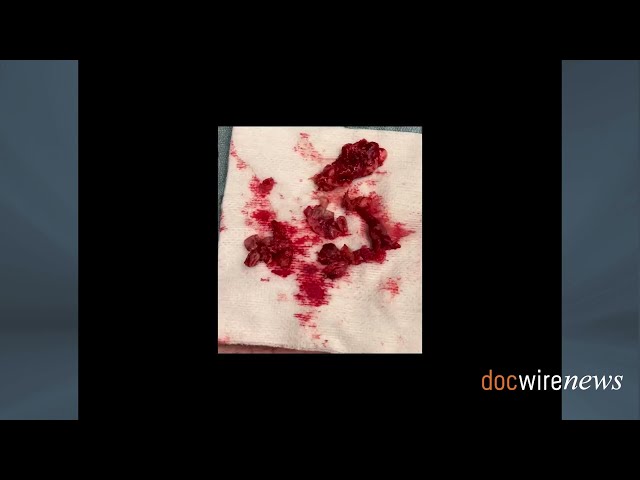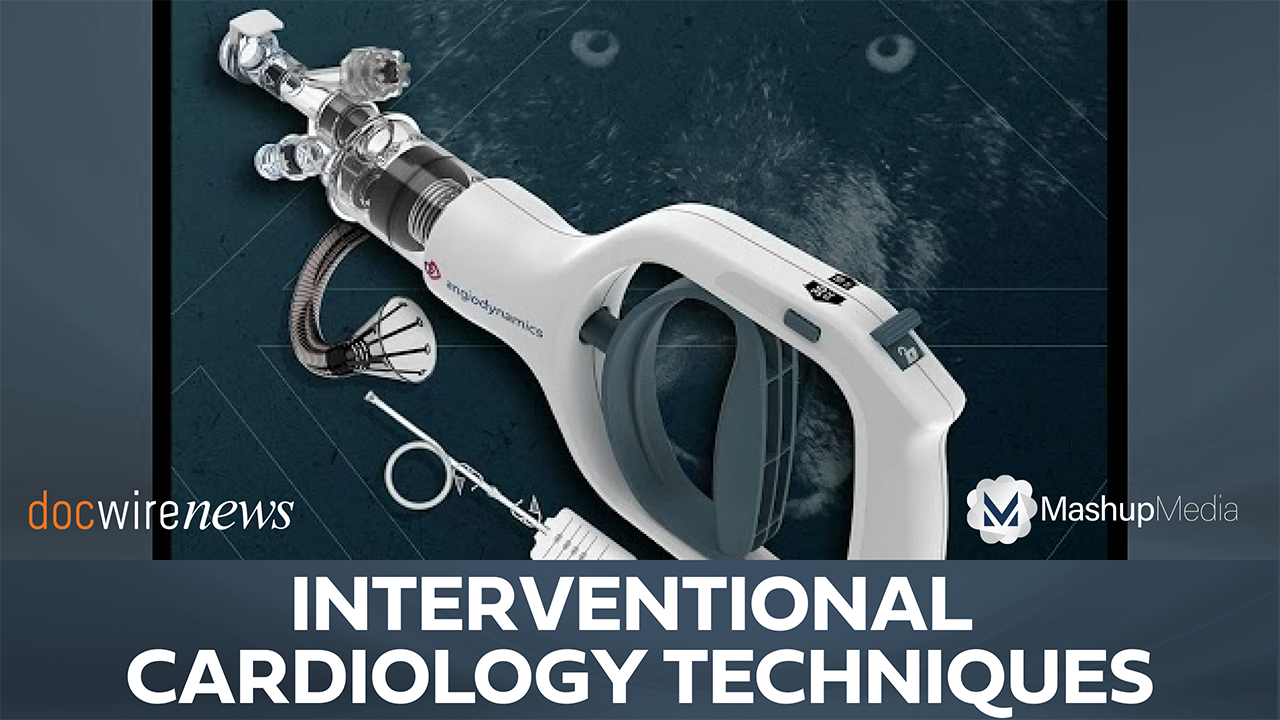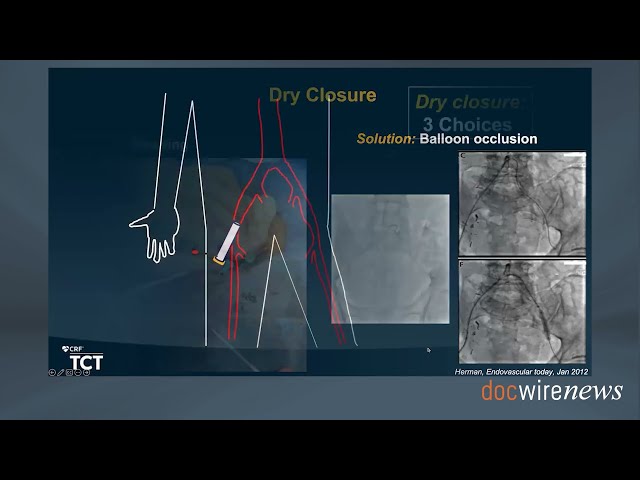Dr. Lichaa Presents: A Passion for Interventional Cardiology
By Hady Lichaa, MD - Last Updated: January 4, 2024In this interview, DocWire News contributor Dr. Hady Lichaa sat down with fellow interventional cardiologist Dr. Rhian Davies to discuss all the challenges and triumphs associated with practicing in this specialty. Dr. Davies, who practices in York, Pennsylvania at WellSpan Health, documented her professional path, and detailed what solidified her love for the interventional cardiology space.
Dr. Hady Lichaa: Good morning, Dr. Davies. How are you?
Dr. Rhian Davies: I’m doing well. Thank you for having me here. This is great.
Dr. Hady Lichaa: We are blessed to have Dr. Davies with us today and we’re going to be talking about passion for interventional cardiology. Dr. Davies is a very well accomplished interventional cardiologist, teacher, educator who practices in York, Pennsylvania, WellSpan Health. And I wanted to kind of get to know her and to learn from her some advices for people who are kind of facing challenges in interventional cardiology, especially in how much strain it adds to our life. So first of all, tell us about you. Where did you train and how many years have you been in practice?
Dr. Rhian Davies: Yeah, thank you. So I did my internal medicine and general cardiology at Penn State in Hershey, Pennsylvania, which is close to my family. So it was a great location. And then I had the opportunity to do my interventional year up at Brown in Rhode Island, which was phenomenal. I got to work with Dr. Abbott up there and that was wonderful, as well as other amazing interventionalists. And then I was fortunate to be able to go to University of Washington to learn CTO high risk PCI with Dr. Lombardi. And that was a phenomenal experience too. And from there I feel I’ve been blessed with so many amazing mentors along the way that have really helped shape my career to being what they are now. Starting with Dr. Gilchrist, at Hershey and then Don Abbot and then Lombardi and Katie McCabe at University of Washington, which has been wonderful.
Dr. Hady Lichaa: Wow, amazing. Having so many amazing mentors in your life, just such a huge influence. Wanted to kind of ask you what really solidified your kind of passion for interventional cardiology that is in your practice?
Dr. Rhian Davies: Well, I think it was just the opportunity to help patients. I mean, it sounds as basic as it is, but you see a little bit of it when you’re going through your general training, when you have the opportunity to take on STEMI calls and stuff as a general early fellow. And you see the difference in those patients when they come into the lab versus when they’re leaving the lab and it’s pretty substantial.
And then even when you take somebody that has stable coronary disease and you can just make their quality of life that much better when you intervene and open up a blockage, particularly a CTO that’s been blocked for a long time. There’s a lot of patients that are on a lot of medications and kind of miserable from those. And the idea that we can help them with stents and opening up lesions that have been occluded for years if not decades is pretty amazing. So I don’t know, I think it just developed from the easy cases and then it turned into the fact that I like the complexity of the harder ones.
Dr. Hady Lichaa: That’s awesome. And throughout your training, I’m sure a lot of things came to your mind, like keeping up with interventional cardiology and having your personal life. Tell us how you went through that and how you were able to make your decision easily.
Dr. Rhian Davies: Well, I’m actually, in my personal life, I’m actually a show jumper. I’m an active equestrian, so I compete up and down the east coast, which is pretty phenomenal. It’s a good release from work, but it also lets me be fun and competitive I think. So it’s good. But I think it’s really important our day to day life can be, we have a lot of challenging cases we deal with a lot and I think having a release, having something that we can do as a hobby is really helpful. So to me it was always important all through training and now in my career to continue to have that. Sometimes I might not be able to compete, but I go for runs and do this sort of thing. Anything to let your mind take a break from your everyday I think is important.
Dr. Hady Lichaa: Great. And is there any advice you have for early career interventional cardiologists who are trying to find that sweet spot and they’re struggling, they want to be successful at work, but there are so many demands in their personal life. Obviously this is a complex issue, but what advice do you have?
Dr. Rhian Davies: Yeah, that’s a challenge and I think there’s a lot of times along the way that we can maybe get pushed in different directions and maybe it’s not what we initially thought was the right move for us. But I think following what actually makes you happy, what drives you every day, because work will be very boring and not fun if you’re not enjoying what you’re doing on a consistent basis.
So finding the right mentors, whether that’s somebody that you’ve had the opportunity to work with or seeking somebody that has a skill set that you want to learn. I think there’s a lot of people out there that can really shape who we become and the sort of interest that we have can develop as a result of those relationships.
So I think if you’re interested in particular fields with interventional, whether it’s structural, it’s peripheral, it’s CTOs and you feel like you’re hitting roadblocks or you’re not able to really learn that, finding people that are in that field are super helpful. You don’t necessarily have to do every case with them, but having a day or an opportunity to work and learn from them is important.
I mean, there are cases now that I’ll call my former, whether it’s Lombardi or Kate, I never hesitate from reaching out. Or if I had a case go wrong, I never hesitate from asking what can I have done better. So just having mentors and people that you trust and you can confide in and talk to, I think is really important so that you don’t get pushed off a track that you want to be on.
Dr. Hady Lichaa: That’s awesome. And what advice do you have specifically for women who are starting their career and kind of finding their way through that?
Dr. Rhian Davies: Yeah, that’s an excellent question. I think the field is certainly growing. There’s more women in this field now than what there was a few years back. I’ve been fortunate that I’ve got to work with some amazing women in our field.
I think again though, it can be very easy as a female to get pushed out of this field just because there’s the worry that you’re going to be exposing yourself to radiation, you’re going to have to be wearing lead. There’s a lot of things now with the advent of Rampart and these leadless systems and Corindus. There’s opportunities for us to be here and not be afraid of radiation and lead.
But I think as a female there’s a matter of you don’t necessarily have to have a female mentor, but I think the opportunity where you may have had the chance to work with somebody who is a female and has been in the field for a while can be really helpful. And I’m always happy to chat with new early career, those who kind of go into fellowship to give them a year if they need to listen or talk to or get some advice from. So I think it’s always a matter of just reach out, don’t be shy.
Dr. Hady Lichaa: That’s awesome. Yeah. I’m sure you inspired a lot of women and men like you inspired me and I really look forward to continue to learn from you. What’s any recent experience that you’ve had that really shaped and solidified your passion for what you do? Any specific story? It doesn’t obviously have to be patient specific, but something that really gave you a lot of push for your career.
Dr. Rhian Davies: So I recently had a patient actually send me a thank you card and I don’t know, I find a lot of value in those thank you cards. They’re simple usually, but it’s just a way of to kind of solidify to me that I’m doing the right thing. This patient in particular was living off of a 90% Circumplex. She had an LED CTO and an RCA CTO.
They’re pretty sick patients at baseline and it was, quote unquote, stable disease. She hadn’t been feeling well for a while but didn’t really seek medical care. And then when she did it was pretty bad. Her EF was about 20, 25%. So I started just kind of putting her slowly back together. We got the Circumplex fixed and did her LED CTO and then finished off with her RCA CTO all in kind of a staged process. And her EF is improved about 40, 45%, but she’s doing her gardening, enjoying her grandkids. There’s just a lot to be said for what we can do. But just getting a little thank you card in my clinic the other day, I was like, oh that, that’s really nice that she thought it was worthwhile to just be like, thank you for saving my life and making me realize how much I was missing out on.
Dr. Hady Lichaa: That’s amazing. I totally understand, it is such a huge… I mean that’s what we’re here for at the end of the day. And of course randomized trials and data and guidelines don’t show what you just said right now. That amazing transformation that you gave that patient in terms of quality of life and probably even survival, but nobody knows. Those trials are very strict and they don’t take patients like the ones that you described and that’s one of those things that is amazing about our field. Finally, for women who are thinking about interventional cardiology that are maybe in internal medicine right now or in general cardiology, what advice do you have for them in terms of making the right decision that solidifies their choices?
Dr. Rhian Davies: Yeah, I think they’re fortunate. There’s a lot of societies now that are really supporting women in this field. So whether it’s through ACC or Sky or Women as One, there’s a lot of opportunity to kind of network with other females and even male mentors that it can really help guide you through the application process, what program might be best suited for you. Those sorts of things to really help you develop yourself to be the best interventionalist you can be. And not getting intimidated by the large amount of male predominance in our field. Because at the end of the day, it’s a great career option and it really is something that you can change a lot of lives with.
Dr. Hady Lichaa: That’s awesome. I really want to thank you for your time. That was amazing. Looking forward to future interviews.
Dr. Rhian Davies: Sounds good. Thank you for having me. I appreciate it.
Dr. Hady Lichaa: All right. Thank you. Have a great day.
Dr. Rhian Davies: Yes, you too. Thank you.







 © 2025 Mashup Media, LLC, a Formedics Property. All Rights Reserved.
© 2025 Mashup Media, LLC, a Formedics Property. All Rights Reserved.